SELI-Q Capsules
$ 8.23
- INR: ₹ 587.21
Minimum order qty is 3 boxes
Introduction
Coenzyme Q10 is most commonly used for conditions that affect the heart such as heart failure and fluid buildup in the body (congestive heart failure or CHF), chest pain (angina), and high blood pressure. It is also used for preventing migraine headache, Parkinson disease, and many other conditions.
CoQ10 and Selenium Reduce Cardiovascular Mortality
Selenium is an essential cofactor for many of the enzymes in our natural cellular free radical scavenging systems. Studies now show thatCoQ10 and selenium have effects that help protect against tissue-damaging oxidative stress.
Selenium is needed by all living cells in order to ensure the optimal function of several enzyme systems.
Independently living senior citizens taking a daily combination of Coenzyme Q10 supplements together with selenium supplements over a four-year study period, maintained significantly better heart function and had significantly reduced risk of death from heart disease compared to senior citizens taking corresponding placebos.
The study showed that the participants enrolled in the active treatment group had significantly better cardiovascular health at the end of the four-year study. The active supplement group experienced:
- Reduced risk of dying from cardiovascular disease
- Improved heart function – based on echocardiogram results
- Reduced levels of biomarkers of oxidative stress, inflammation and fibrosis
- Actual reduction in hospitalization events
- Improved quality of life
- Lower risk of dying 12 years after the study
- Selenium and CoQ10 Provide a Lasting Effect
- The most noteworthy effect was that the use of multiple antioxidants for 3-6 months increased sperm motility and concentration.
1. Coenzyme Q10
CoQ1O is a non-enzymatic antioxidant that is responsible for the protection of cells against lipid peroxidation-induced damage. It is found in organic meats, beef, soy oil, sardines, and peanuts.
A randomized placebo-controlled trial carried out, showed that CoQ1O therapy (for a 26-week period) in 212 infertile men suffering from idiopathic OAT resulted in a significant improvement in sperm count, motility, and morphology. (OTA): Oligo-astheno-terato-zoospermia is a condition that includes oligozoospermia (low number of sperm), asthenozoospermia (poor sperm movement), and teratozoospermia (abnormal sperm shape). OAT is the most common cause of male subfertility.
2. Vitamin E
Vitamin E, also known as alpha-tocopherol, is a fat-soluble antioxidant vitamin found in almonds, avocados, spinach, and sweet potatoes that neutralizes free radicals and protects the cellular membrane against damage from ROS (Reactive Oxygen Species). It prevents lipid peroxidation and enhances the function of other antioxidants.
In a prospective study of 690 men suffering from idiopathic OAT, selenium supplements in combination with vitamin E were administered for a period of 100 days, and in 52.6% of cases, there was an overall improvement in sperm motility, morphology, or both. Moreover, spontaneous pregnancy occurred in 10.8 % of cases in the treatment group.
3. Zinc
Zinc deficiency has been postulated as a putative contributing factor to male factor infertility. Zinc is the second most abundant trace element found in human tissue, following iron. Food sources of zinc include red and white meat, fish, and milk, and the World Health Organization estimated that about one-third of the global population is deficient in zinc. The
trace element zinc serves as a cofactor for numerous enzymes responsible for cellular development, such as DNA transcription and protein synthesis.
Zinc plays a pivotal role in testicular development, steroidogenesis, the synthesis and secretion of luteinizing hormone and follicle-stimulating hormone, gonadal differentiation, the formation and maturation of spermatozoa, the acrosome reaction, and fertilization.
A recent systematic review concluded that seminal zinc levels were lower in infertile men and that zinc supplementation increased semen volume, sperm motility, and normal sperm morphology.
4. Selenium
Selenium is an essential trace element that plays an important role in sperm formation and testosterone synthesis. At least 2S selenoproteins have been identified in humans and animals, and these selenoproteins help to maintain the structural integrity of sperm.
Most people can get their RDA (Recommended Daily Allowance), of selenium from food. In some studies, to determine if selenium could aid in prostate cancer prevention, men took 100 micrograms daily. The safe upper limit for selenium is 400 micrograms a day in adults. Anything above that is considered an overdose
When should I take SELE-Q morning or night?
Higher doses may be recommended for specific conditions. CoQ10 & Vitamin E is fat soluble, so it should be taken with a meal containing fat so your body can absorb it, either after breakfast or dinner.
What are the symptoms of CoQ10 & Vitamin E deficiency?
For example, muscle weakness and fatigue, high blood pressure, and slowed thinking can all be caused by countless factors, one of which is low CoQ10 levels. Some of the more extreme symptoms of CoQ10 deficiency include chest pain, heart failure, and seizures.
CoQ10 supplements can interact with some common medications, including blood thinners, antidepressants and chemotherapy drugs.
Dose: One capsule a day or recommended by your physician or Pharmacist.
Be the first to review “SELI-Q Capsules” Cancel reply
Related products
AYUSH (Herbal)
- INR: ₹ 473.76
AYUSH (Herbal)
- INR: ₹ 2,012.07


 العربية
العربية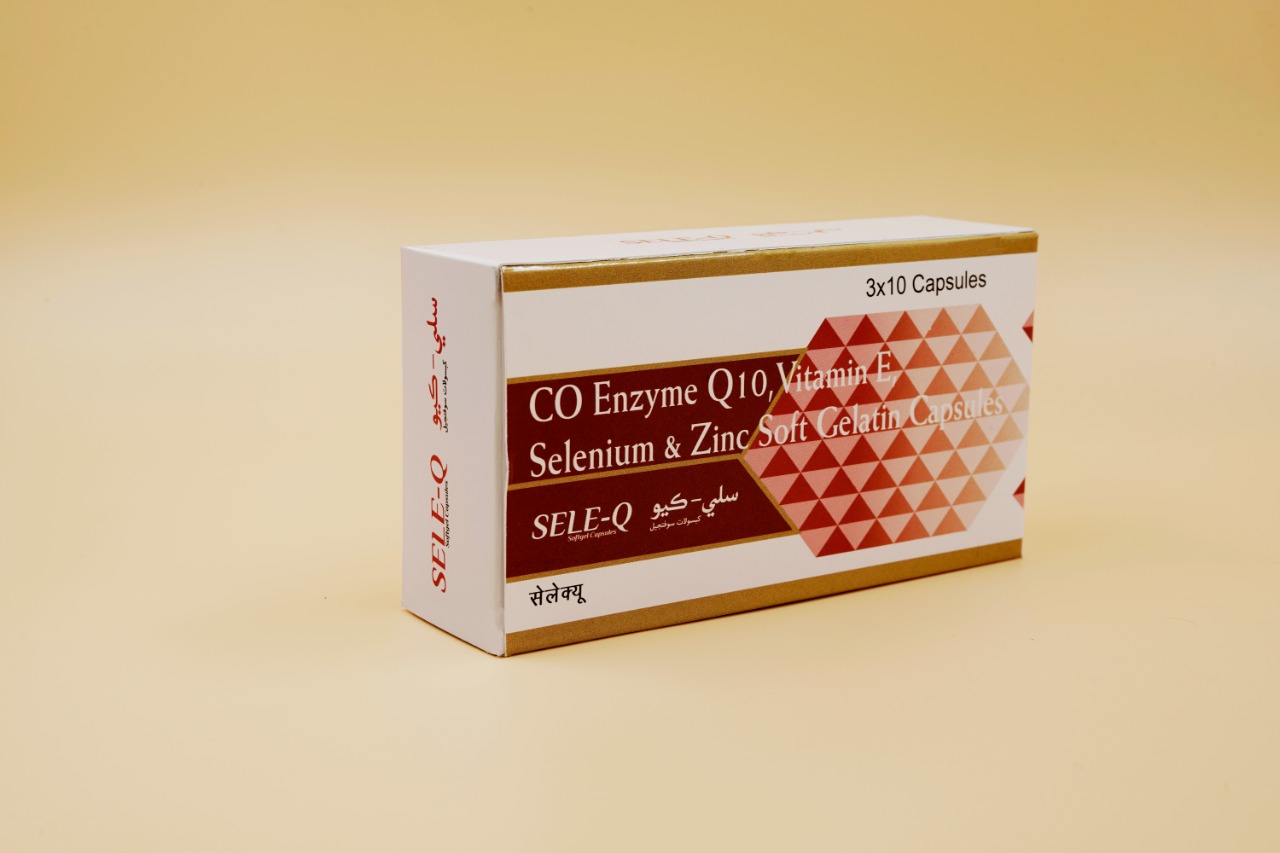
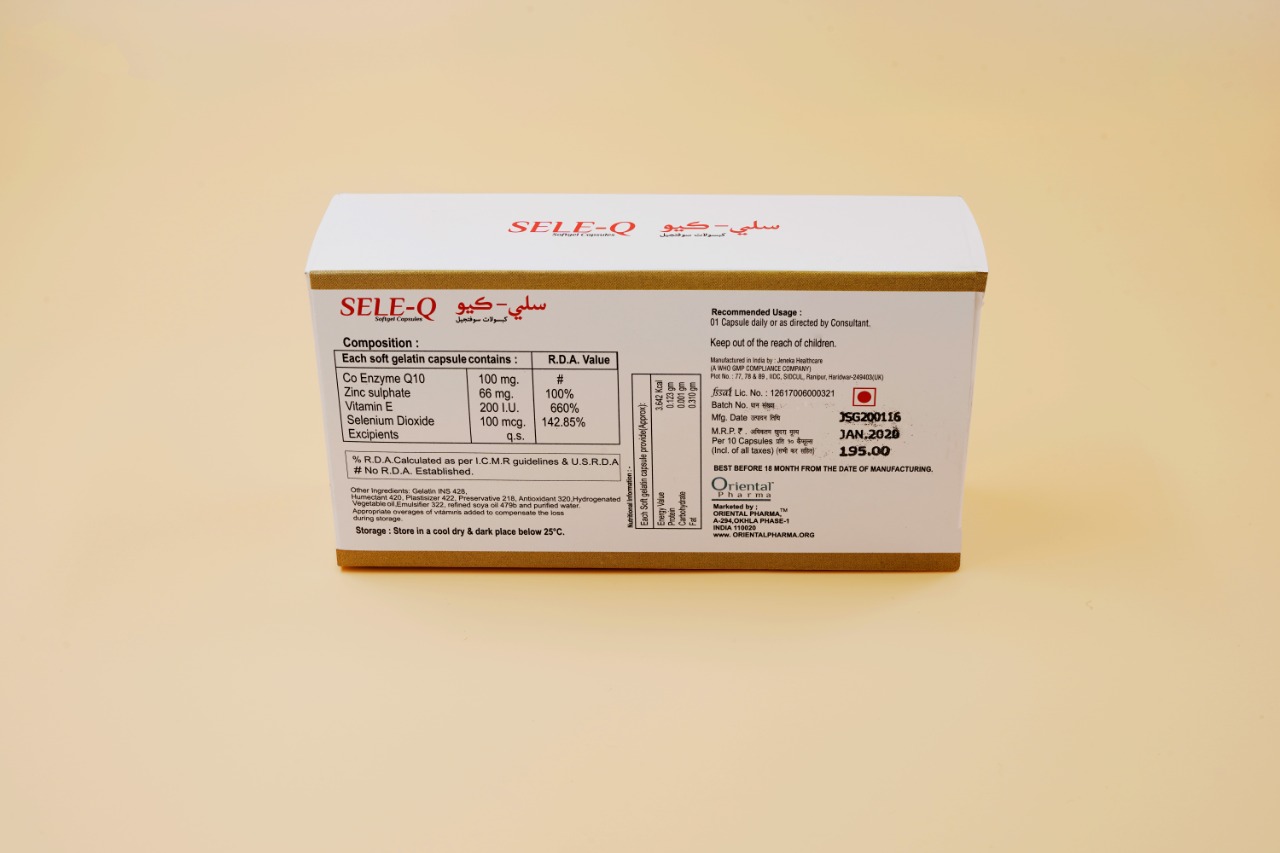
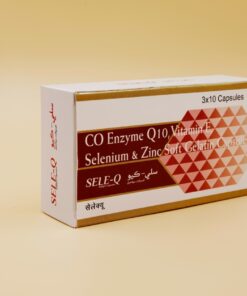
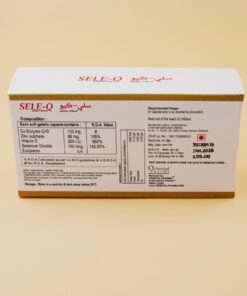
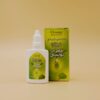
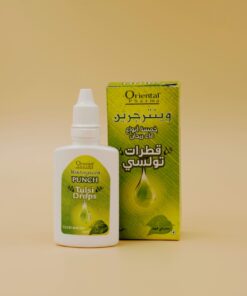
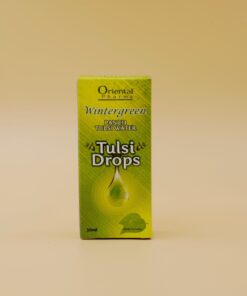
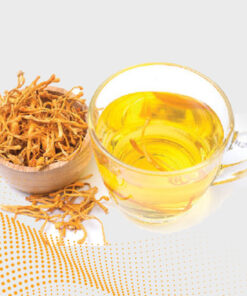

Reviews
There are no reviews yet.